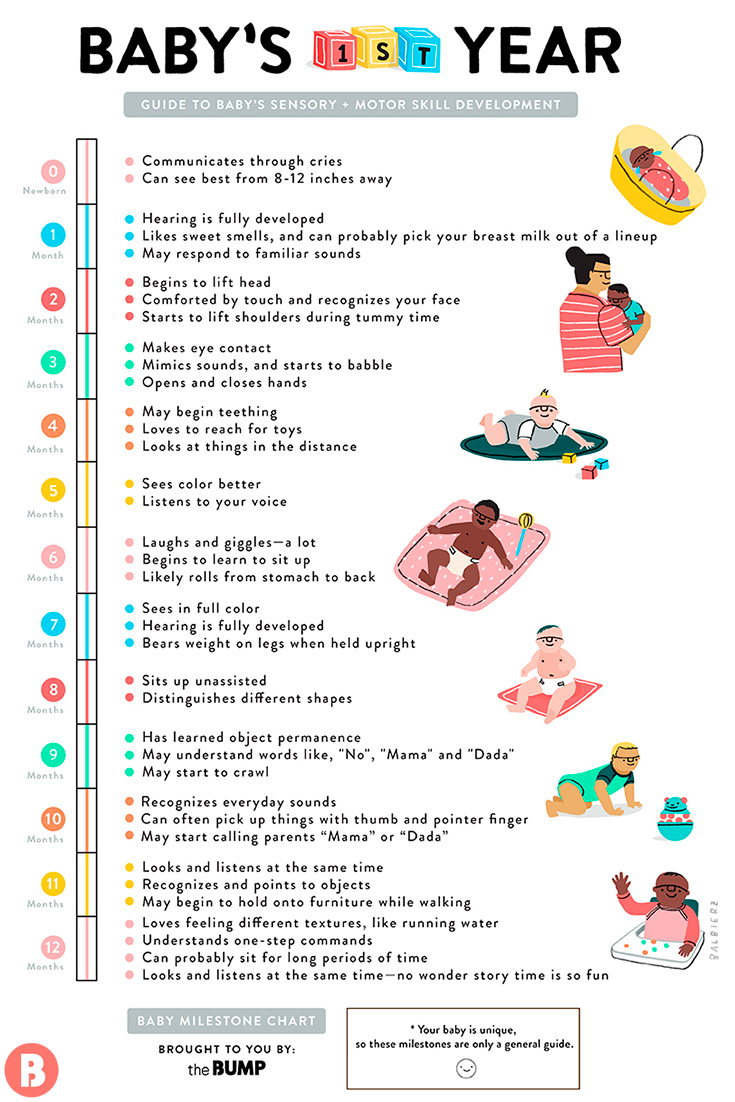
As a new parent, it’s exciting to see your baby growing and developing. From their first smile to their first word, every milestone is a precious moment to treasure. Here are some of the key milestones that you can expect your newborn to reach in their first year of life.
Table of Contents
1. Sleeping and Eating

Newborns typically sleep for 16-17 hours a day and wake up every few hours to eat. By the end of their first month, they may start sleeping for longer stretches at night. Breastmilk or formula is the only source of nutrition for the first 6 months of life.
2. Developing Motor Skills

During the first few months, your baby will start to gain control over their movements. They will begin to lift their head and turn it from side to side. By 4-6 months, they may start rolling over and sitting up with support. By 9-12 months, they may be crawling, standing and taking their first steps.
3. Cognitive Development

Babies are constantly learning and exploring their surroundings. They will start to recognize faces and voices, and may even respond to their name. By 6-9 months, they may start to babble and make sounds. By 12 months, they may say their first word.
4. Social and Emotional Development
As your baby grows, they will start to interact with others and develop their own personality. They may smile and laugh in response to your actions, and may even start to show preferences for certain toys or activities. By 9-12 months, they may start to show separation anxiety when you leave them with someone else.
5. Vision and Hearing

Newborns have limited vision and can only see objects that are close to them. By 2-3 months, they may start to recognize faces and track moving objects. Hearing is fully developed at birth, and babies can recognize familiar sounds and voices.
6. Teething

Teething usually starts around 6 months, but can vary from baby to baby. Symptoms may include drooling, fussiness, and irritability. You can help soothe your baby’s discomfort by giving them teething toys or a cold washcloth to chew on.
7. Immunizations

Immunizations are an important part of your baby’s health care. They help protect against serious and potentially life-threatening diseases. Babies usually receive their first round of immunizations at 2 months of age, and continue to receive them throughout their first year.
Conclusion
Watching your baby reach each milestone is a wonderful experience. Every baby develops at their own pace, so don’t worry if your baby is slower or faster than others. If you have concerns about your baby’s development, talk to your pediatrician.
Frequently Asked Questions
1. When do babies start to crawl?
Most babies start to crawl between 7-10 months of age.
2. When do babies start to talk?
Babies may say their first word around 12 months of age, but some may start to babble and make sounds as early as 6-9 months.
3. How often should I feed my newborn?
Newborns typically feed every 2-3 hours.
4. When should I start introducing solid foods?
You can start introducing solid foods around 6 months of age.
5. When should I schedule my baby’s first pediatrician visit?
Your baby’s first pediatrician visit should be within the first week after birth.
